Children displaced by war
Six things
we do to
help children
with trauma
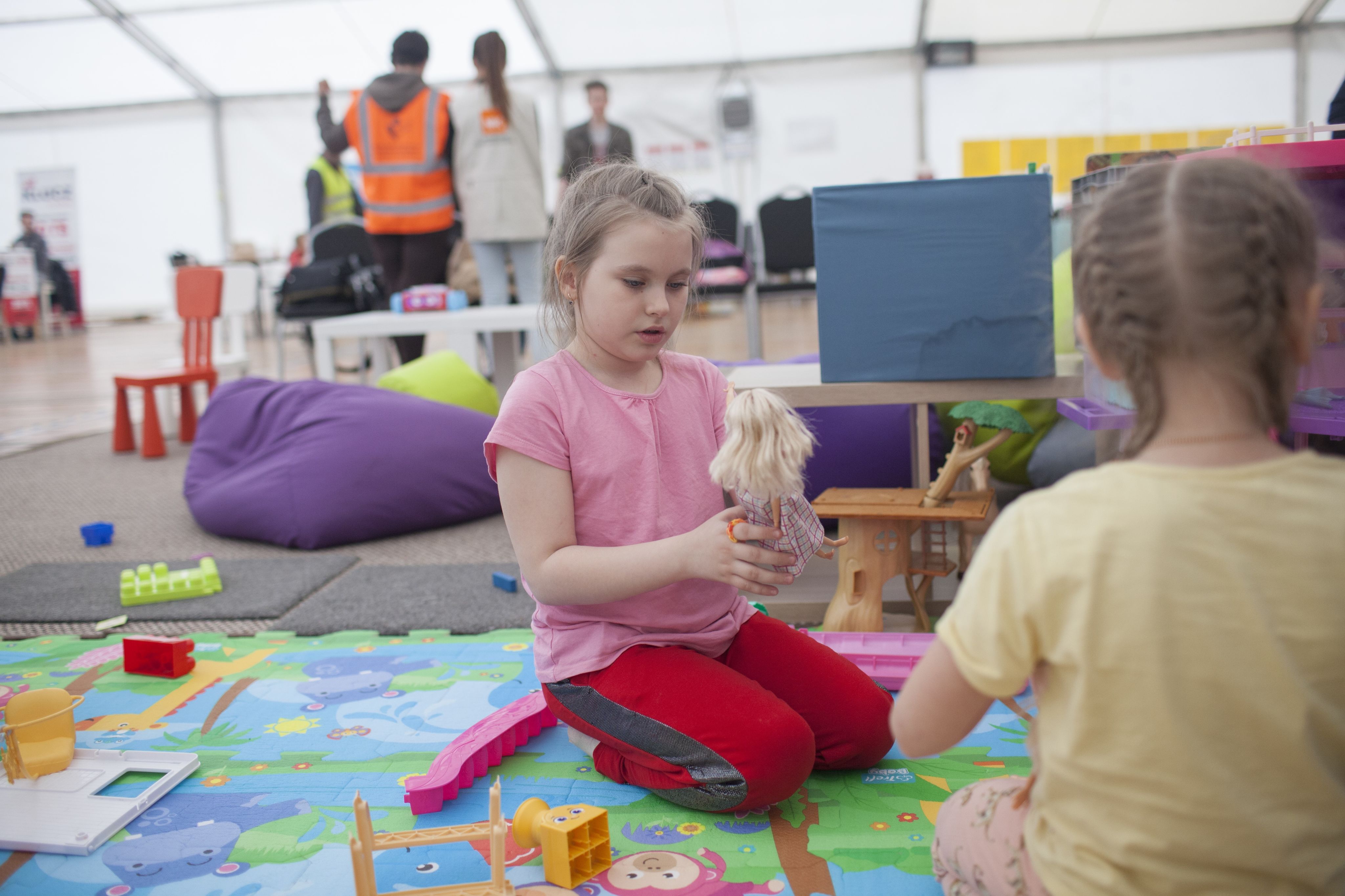
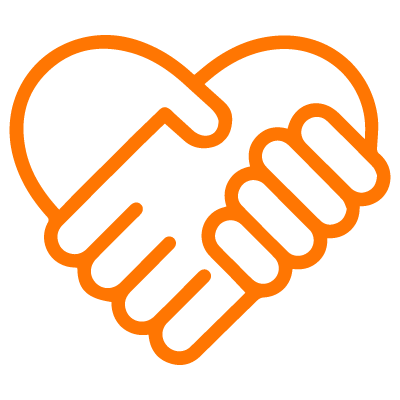
Most of us experience crises in life: accidents, illness, bereavement, unemployment, betrayal, broken hearts. We can’t sleep, we can’t concentrate on school or work. Everything seems hopeless. Most of us eventually manage to pull through.
But displaced children, who have experienced war and terrible events, often need help to recover. That’s why we have developed a special programme to help children deal with mental stress and the trauma of war.
TV images from the war in Ukraine show children spending large parts of their day in bomb shelters, while bombs and grenades reduce their schools and homes to ruins. We have also seen mothers trying to comfort their children as they say goodbye to their fathers or embark on a dramatic journey.
Many of these children will develop stress and trauma disorders that will affect them for a long time to come.
These are the challenges our colleagues face every day, both in Ukraine and other war-torn areas. And we can help make a difference.
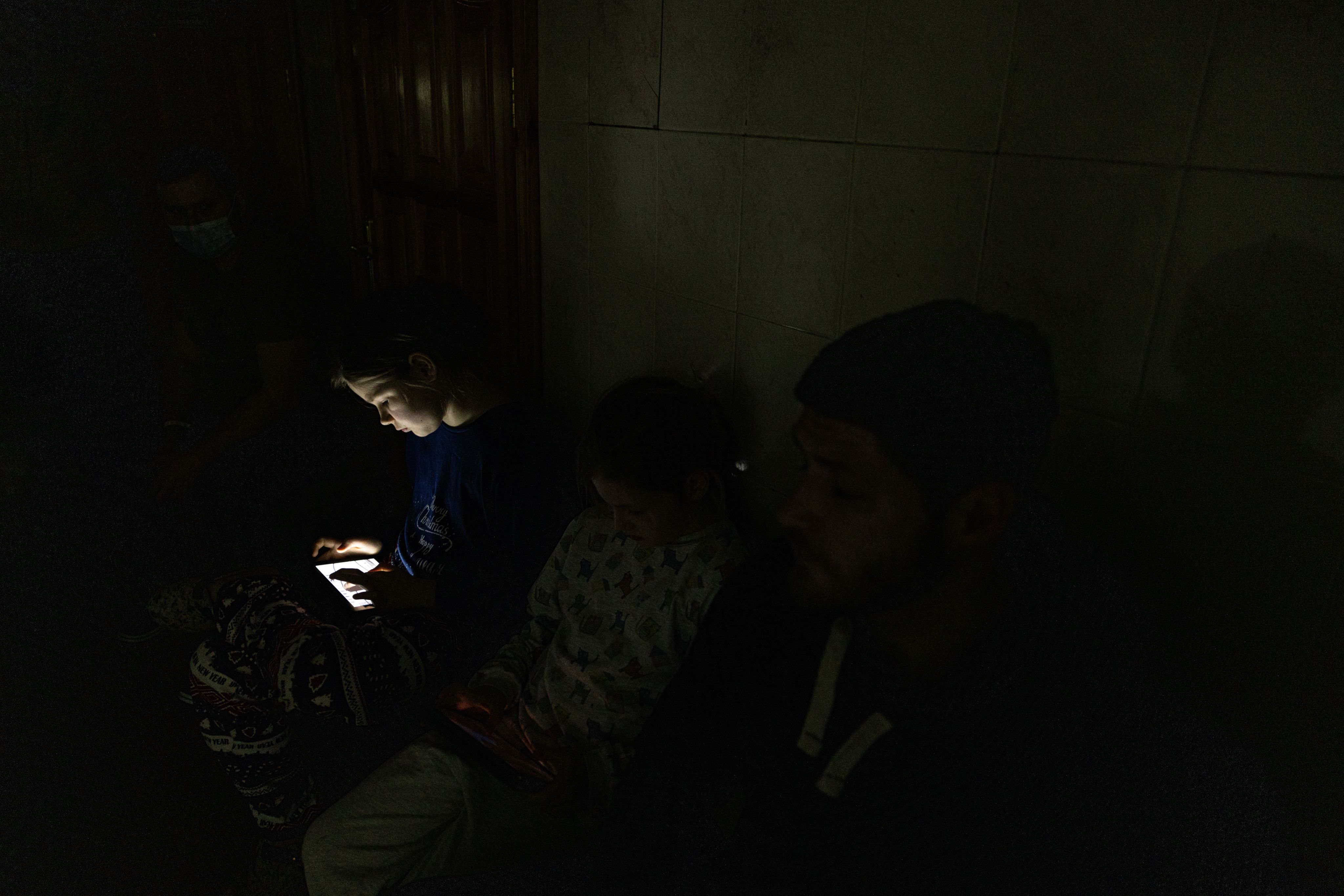
UKRAINE. A boy has sought shelter in a basement, which serves as a bomb shelter, at a maternity clinic in the capital Kyiv. Photo: Roman Pilipey/EPA/NTB
UKRAINE. A boy has sought shelter in a basement, which serves as a bomb shelter, at a maternity clinic in the capital Kyiv. Photo: Roman Pilipey/EPA/NTB
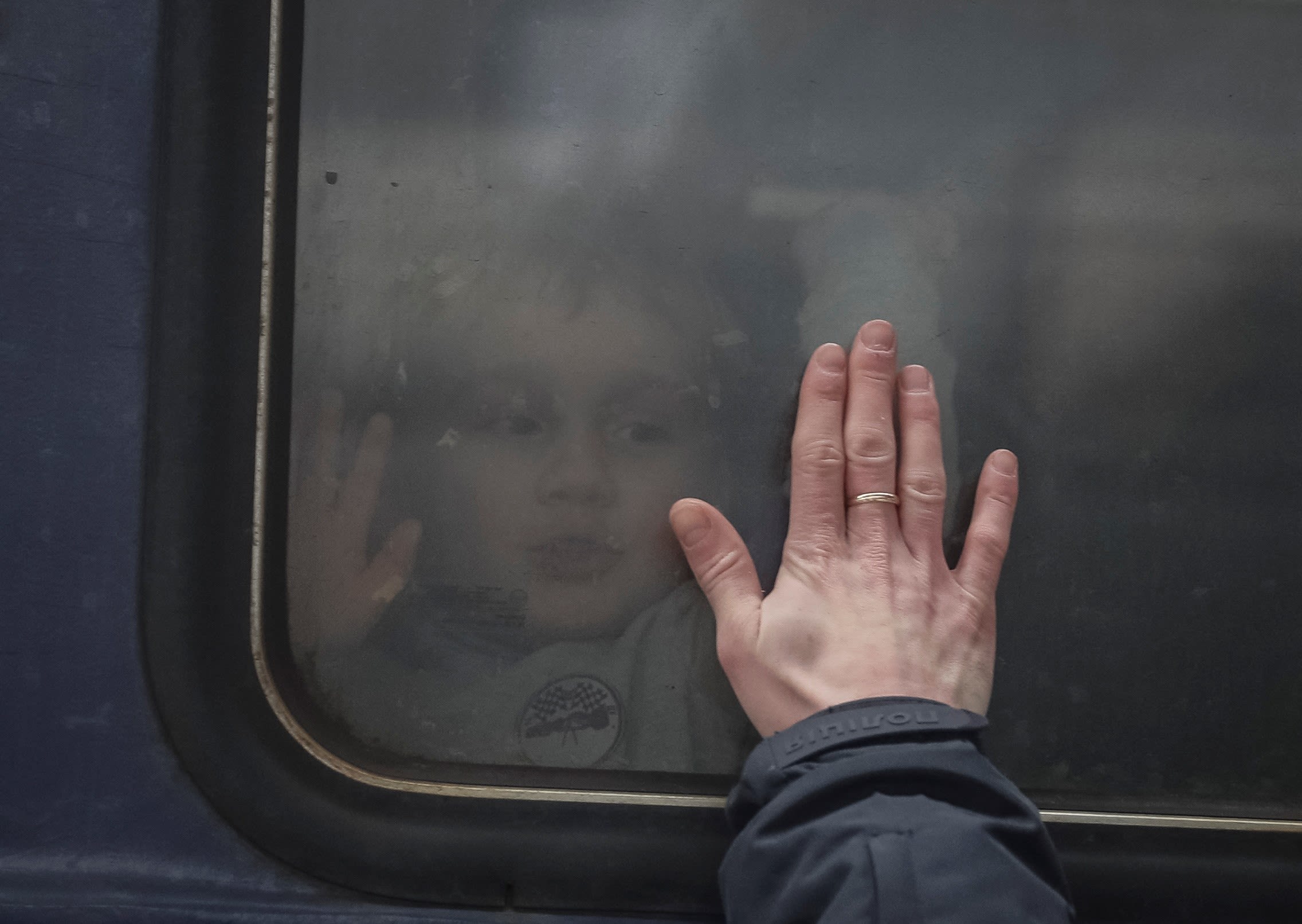
UKRAINE: A child says goodbye to its father through the window of an evacuation train as it leaves the station in Kyiv. Photo: Gleb Garanich/REUTERS/NTB
UKRAINE: A child says goodbye to its father through the window of an evacuation train as it leaves the station in Kyiv. Photo: Gleb Garanich/REUTERS/NTB
The Better Learning Programme
To help children who are experiencing stress and trauma, we have worked with Professor Jon-Håkon Schultz and the University of Tromsø to develop the Better Learning Programme, a psychosocial school programme.
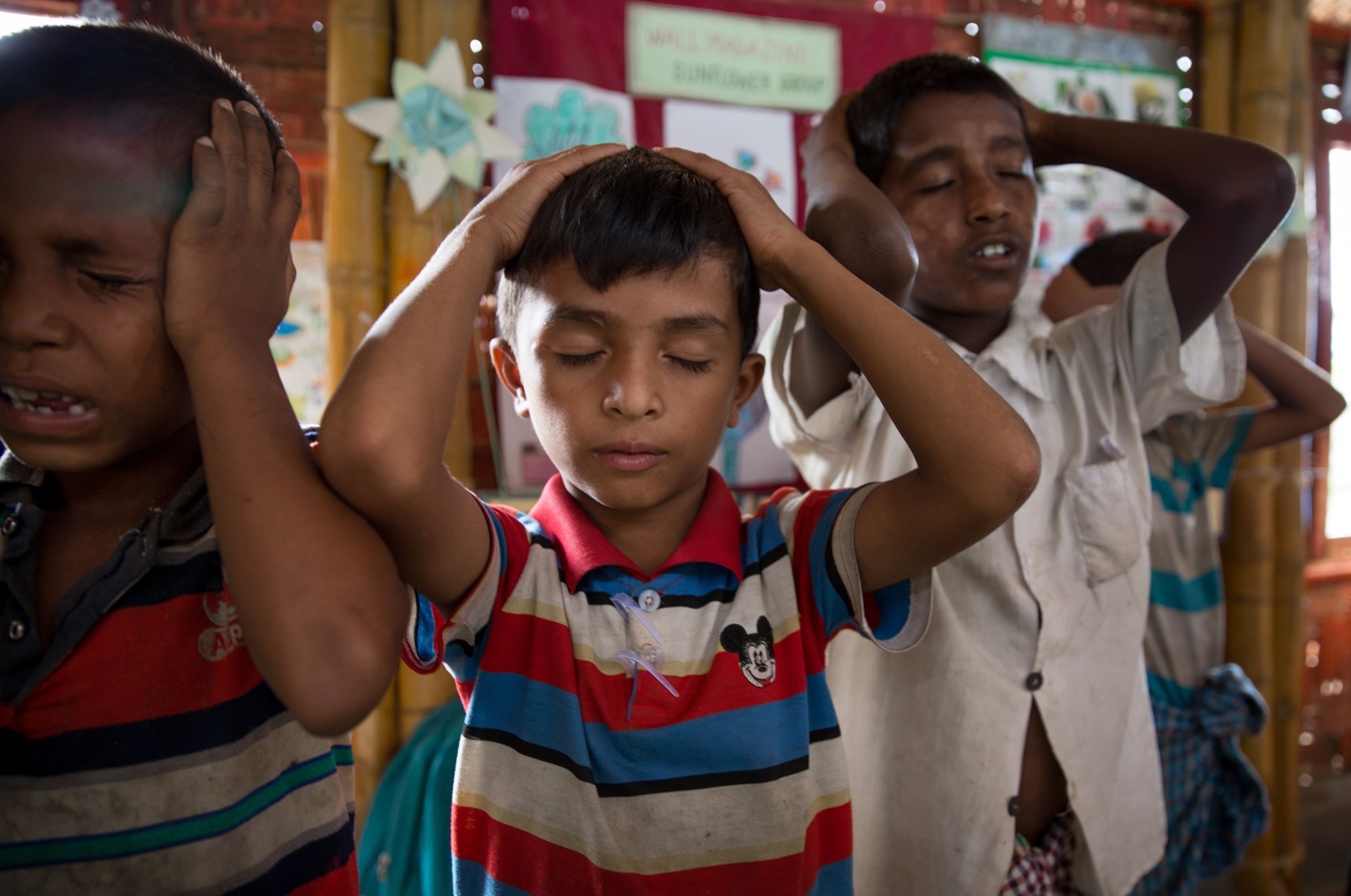
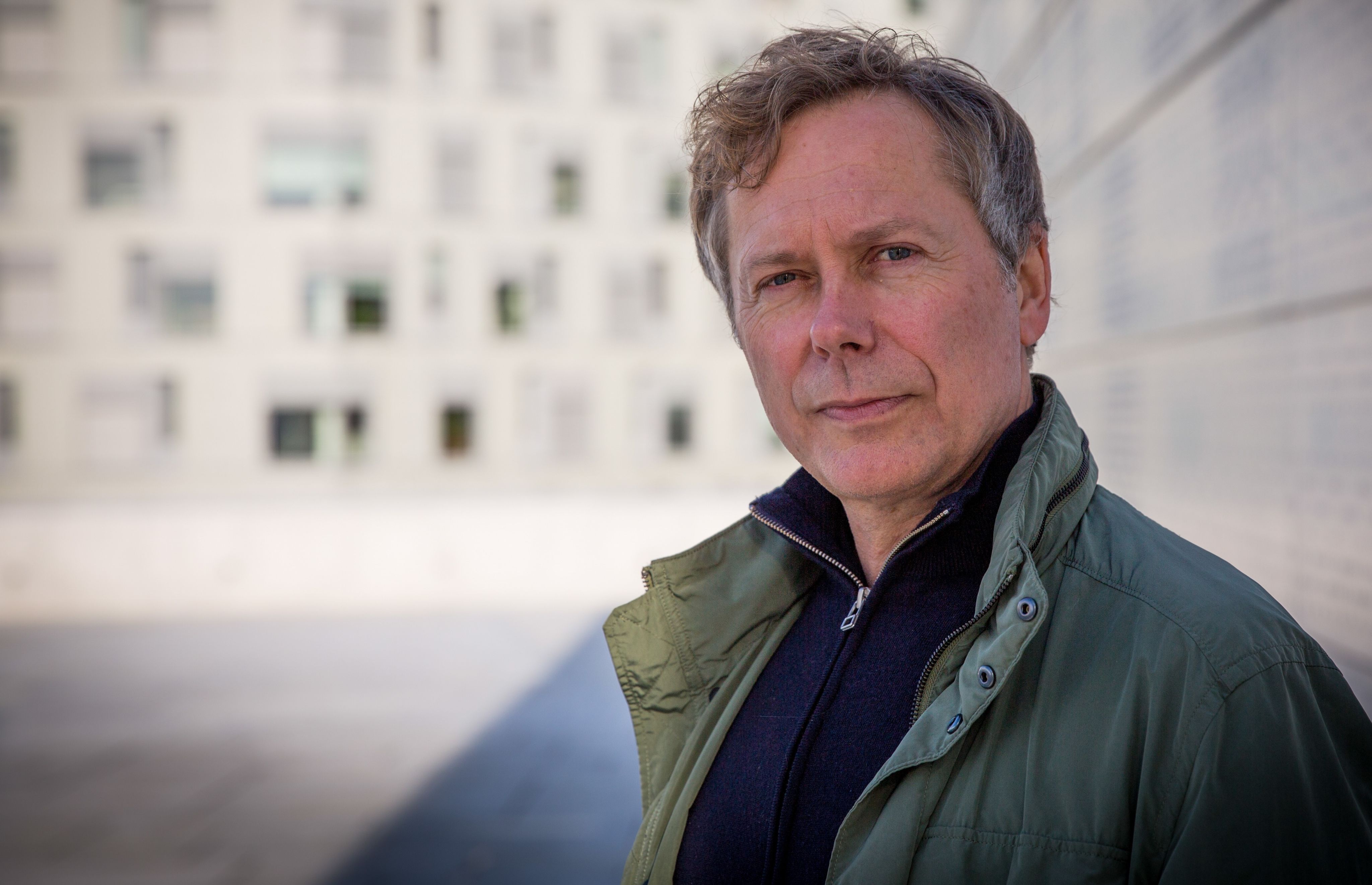
Professor Jon-Håkon Schultz and the University of Tromsø have collaborated with the Norwegian Refugee Council (NRC) for many years. Photo: Ingebjørg Kårstad/NRC
Professor Jon-Håkon Schultz and the University of Tromsø have collaborated with the Norwegian Refugee Council (NRC) for many years. Photo: Ingebjørg Kårstad/NRC
The programme, which combines psychosocial and educational methods, helps teachers to support children who are suffering from stress and trauma as a result of war and displacement.
“The Better Learning Programme is based on two basic principles. The first is to help the children find a sense of calm. Not only immediately after their experience of war, but also later when they think back on what happened and get scared. The second principle is to help them rebuild a sense of security,” says Schultz.
The first [principle] is to help the children find a sense of calm... The second principle is to help them rebuild a sense of security.
The children learn to use various coping strategies so that they can take control of their fears. The object is for the children to find their way back to the energy they need to be able to learn in school and function in everyday life.
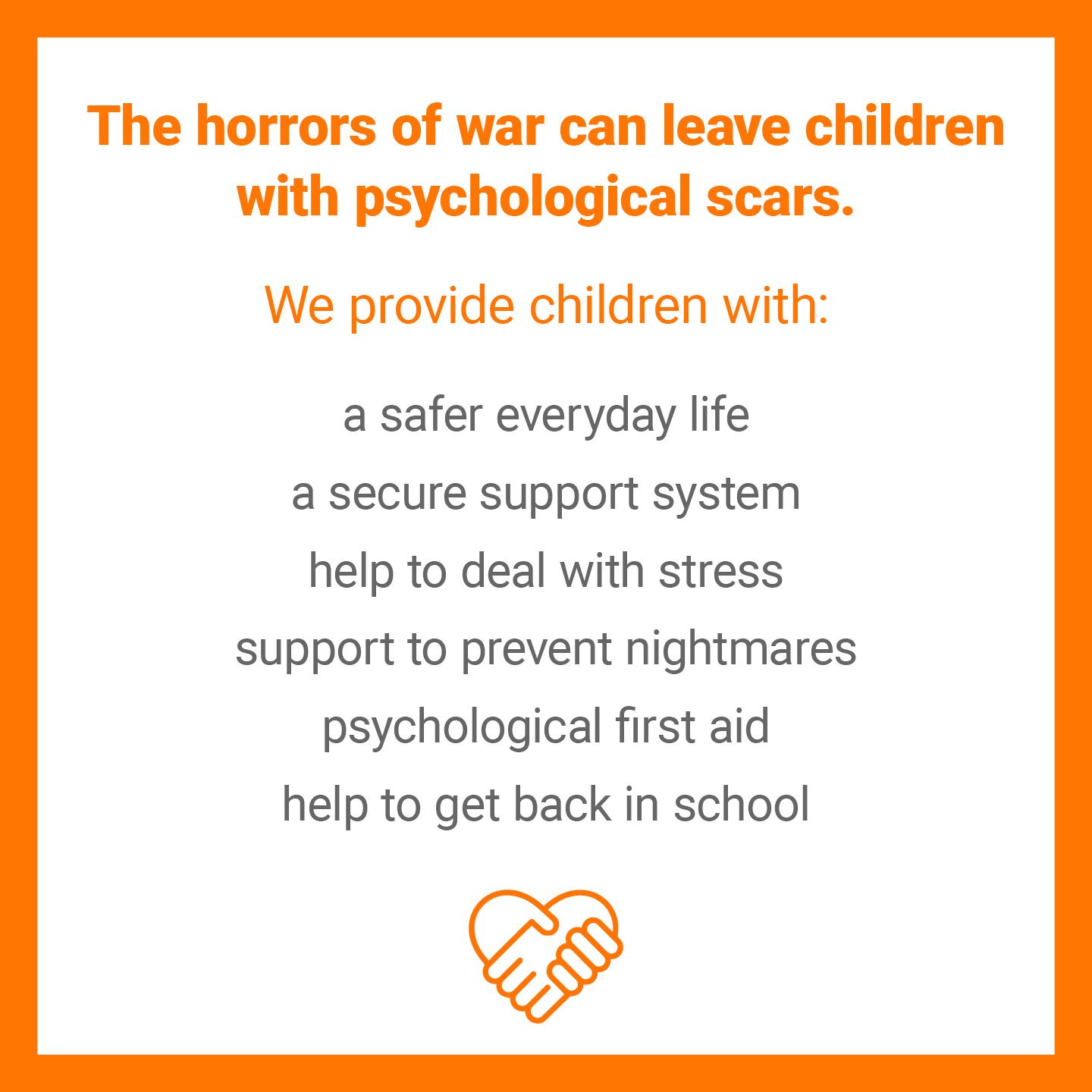
Wars don't end when bombs stop falling. Help us be there for children facing trauma. Visit nrc.no/donate.
How we help children who are struggling with trauma
#1: We give children a safer daily life
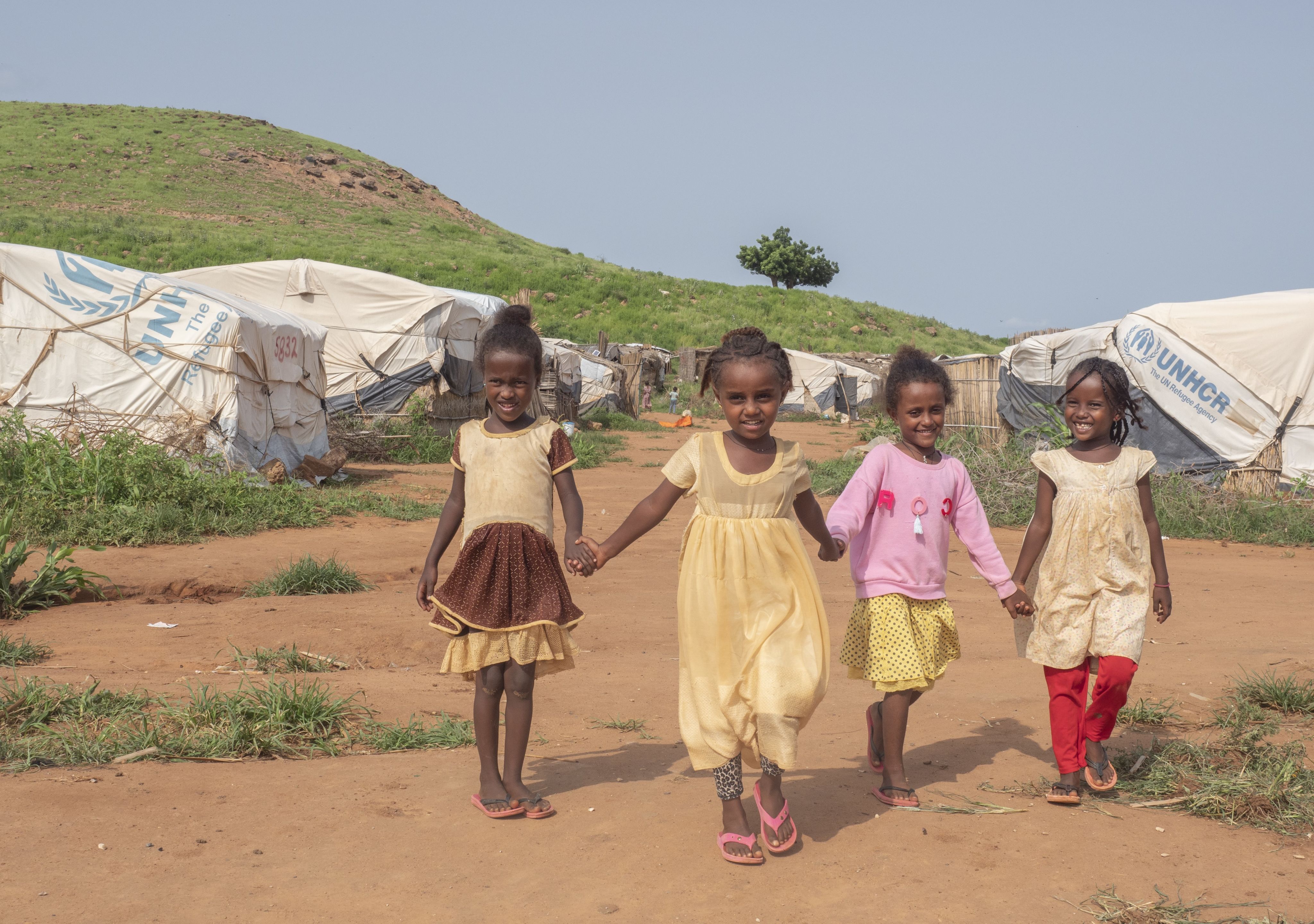
The Better Learning Programme helps both children and teachers to prevent and deal with the problems children experience in areas affected by war and crisis.
When children are forced to flee their homes, or when they return home after being displaced, it is important that they return to school as soon as possible and establish healthy routines. The longer they are away from school, the greater the chance that they will lose years of education.
A good school provides structure in everyday life, gives children respite and helps them deal with stress and trauma.
“By giving displaced people structure in life, you build something that helps them survive. Without it, they become vulnerable. When your family is falling apart and you can’t function at school, you have nothing,” says Jon-Håkon Schultz, Professor at the University of Tromsø.
#2: We provide a strong support apparatus
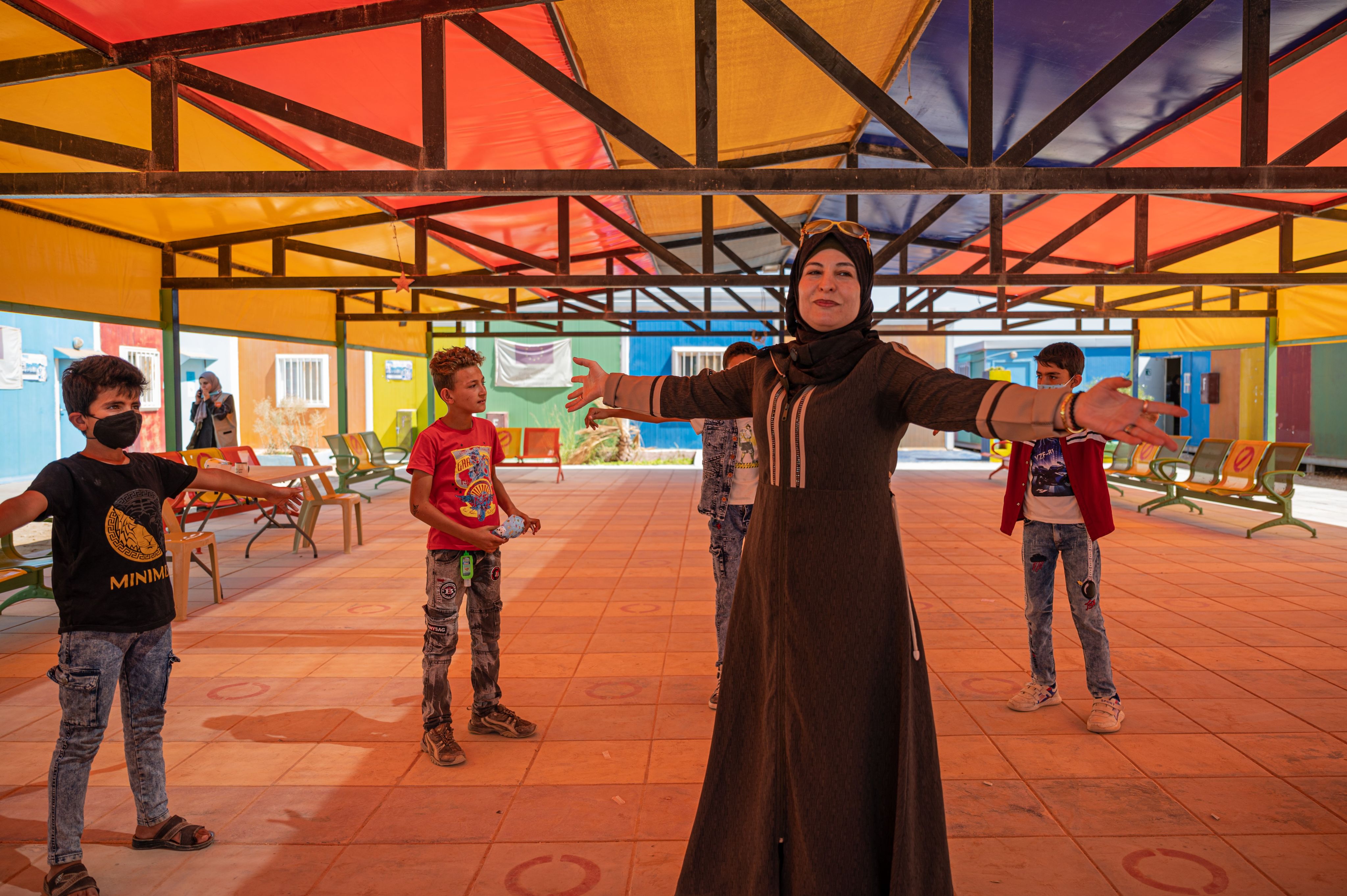
Children who are forced to flee their homes and who experience violence, murder, war and conflict often struggle with high levels of anxiety and stress. Many have post-traumatic nightmares, sleep poorly at night and have a hard time concentrating at school.
This makes it especially important to have good teachers, who can adapt their teaching to the children’s needs.
We hire teachers and provide them with training in our specially adapted learning programme, so they can help children cope with stress and trauma.
#3: We help children cope with mental stress
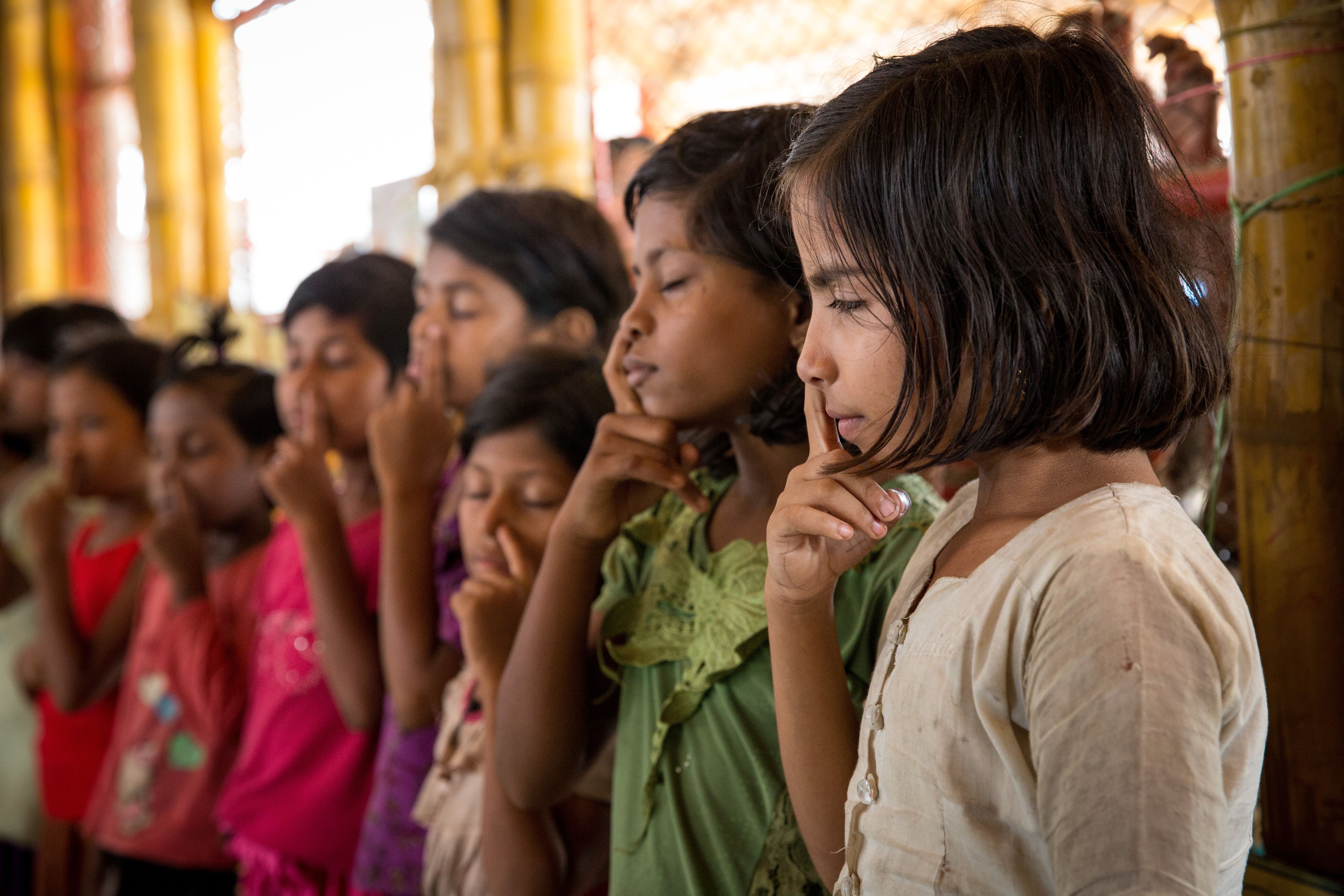
Aside from their home and family, school is the most important arena in children’s lives. This is especially true for displaced children. A good school with good teachers can help children move past their trauma. That’s why school is so vital.
“Among other things, the programme helps children to reduce stress, so they have the energy to learn and develop at school, despite the terrible things happening around them,” says Schultz.
Wars don't end when bombs stop falling. Help us be there for children facing trauma. Visit nrc.no/donate.
Learning self-help techniques to deal with mental stress is very effective for children struggling with trauma.
The children learn simple relaxation techniques, so they can regulate overwhelming emotions themselves. These include breathing exercises, singing, dancing, drawing and acting.
#4: We help eliminate post-traumatic nightmares
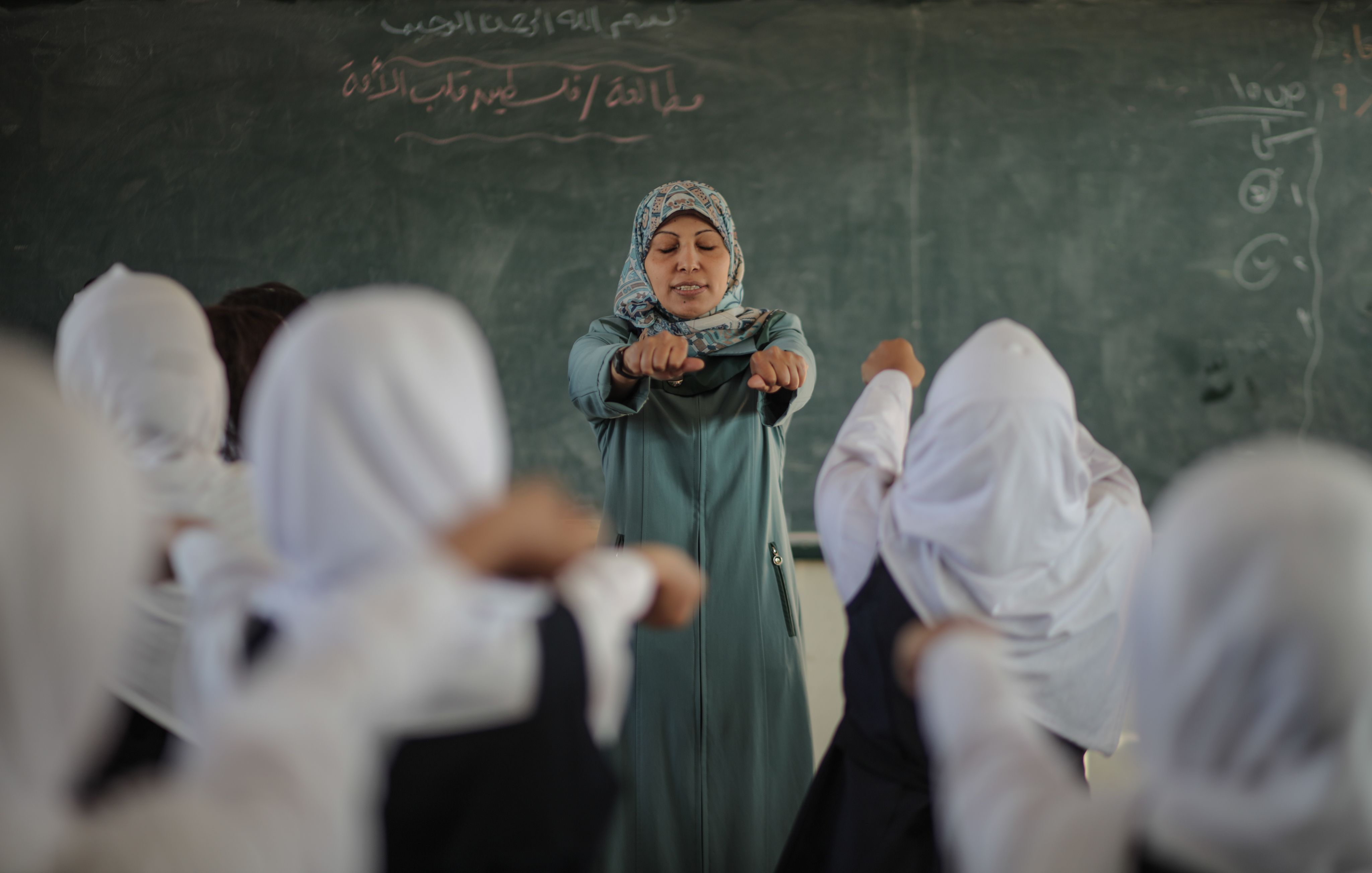
Many children in areas affected by war and crisis struggle with post-traumatic nightmares.
“They wake up and are immediately in alarm mode. Stress hormones pump through their veins, their body trembles, their breathing becomes heavy and fast, they scream and think they are going to die.” This is how Schultz describes the children’s reactions.
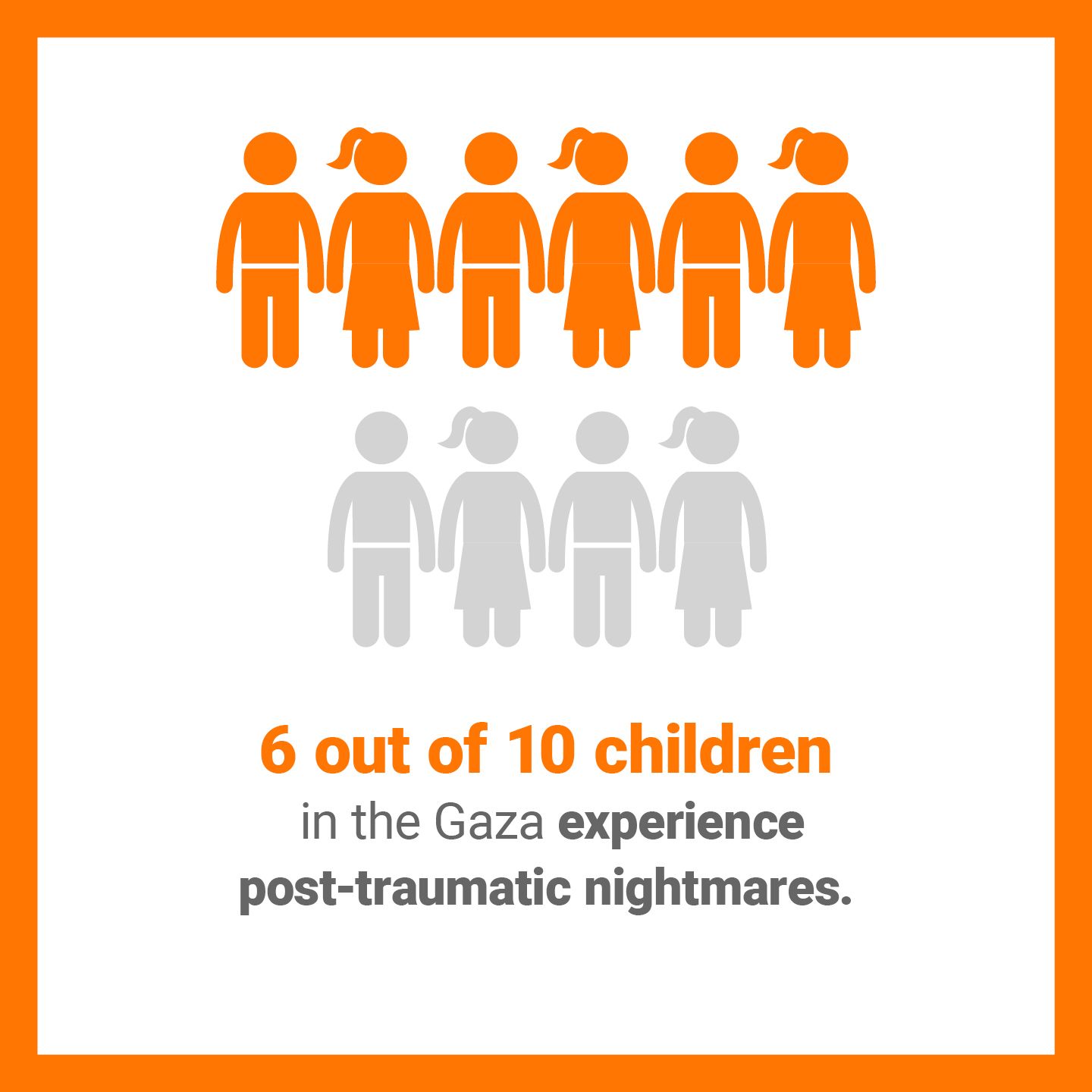
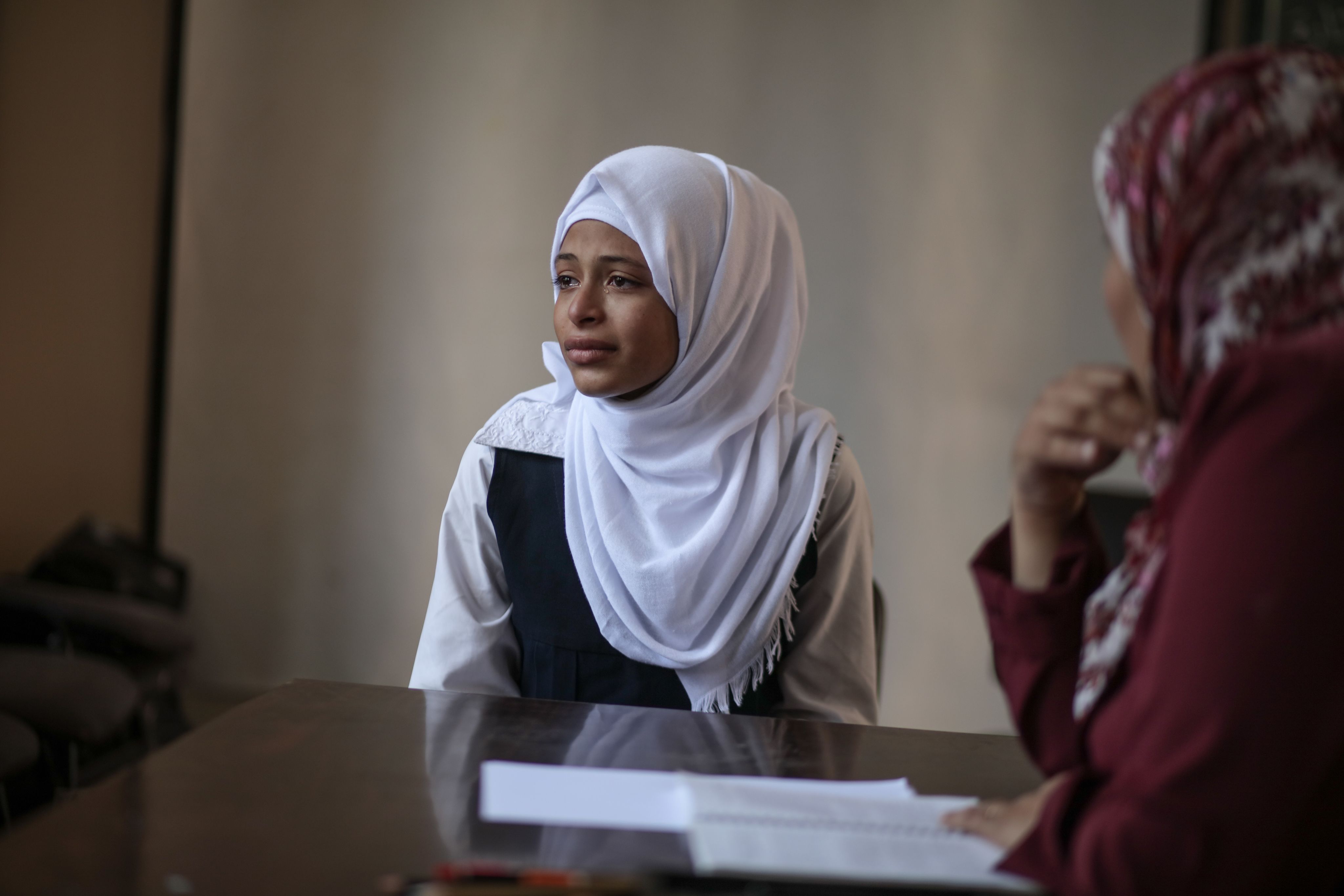
PALESTINE/GAZA 2017. Omaia, 13, dissolves in tears during a conversation with Etemad Hjail, who teaches her how to deal with trauma and nightmares. Photo: Wissam Nassar/NRC
Six out of ten Palestinian children in the Gaza Strip experience post-traumatic nightmares, according to a 2018 study by NRC. To support them, we collaborated with 118 schools in Gaza and reached 75,000 school children with psychosocial support.
Among other things, the children learned how to talk about post-traumatic reactions and how to use breathing exercises to control their anxiety.
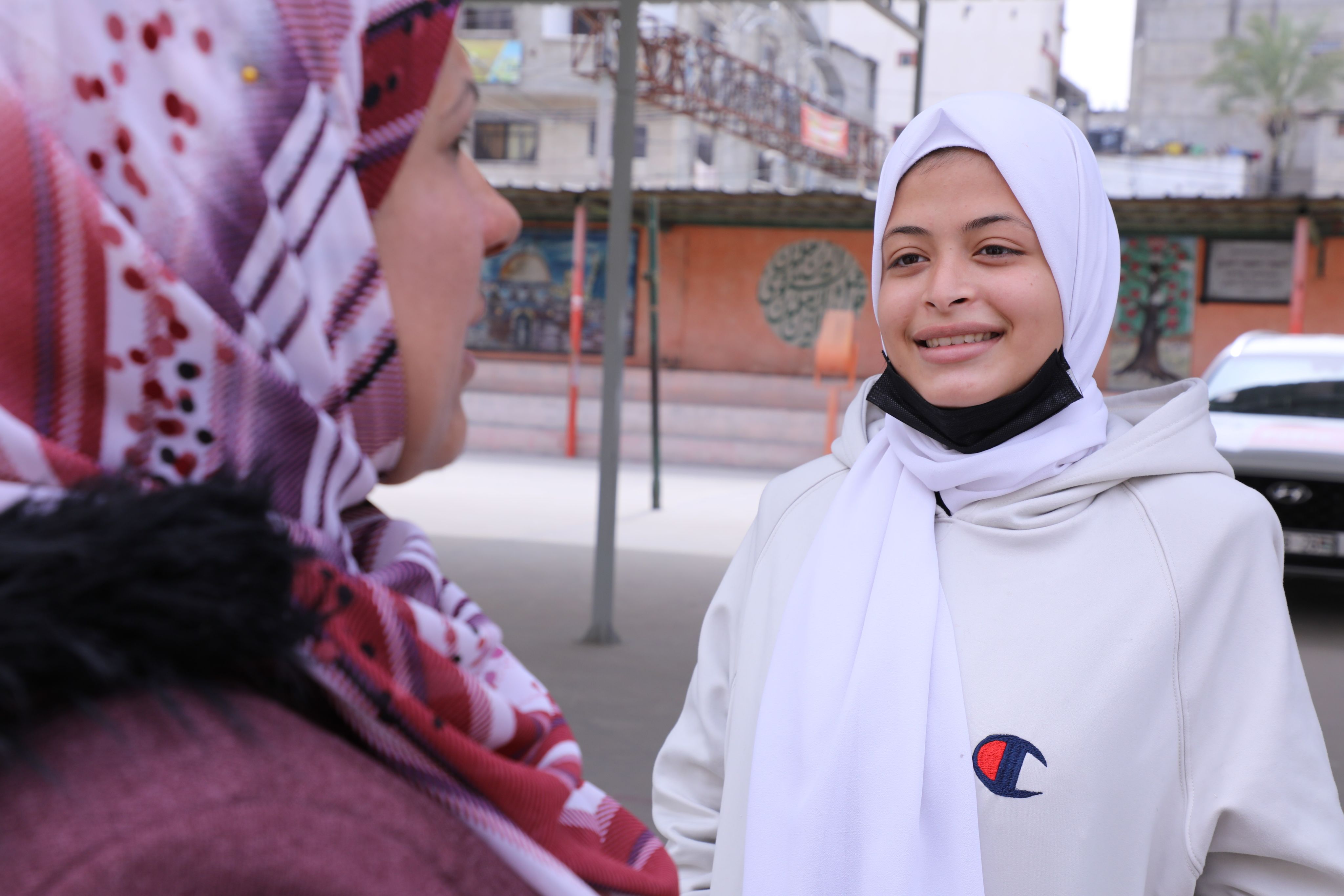
5 YEARS LATER. Omaia, now almost 17, is still struggling, but the tears have been replaced with a smile. Here she is in conversation with Etemad Hjail, who taught her how to deal with trauma and nightmares. Photo: Yousef Hammash/NRC
Read more about Omaia and how she is doing now.
Students that took part in the Better Learning Programme in Gaza improved in several areas:
- more able to concentrate at school
- fewer stress symptoms
- better academic performance
“The results have been astonishingly positive. For children who had an average of five nightmares a week, 70 per cent no longer have nightmares, or the nightmares have been reduced to just one a week. This helps the children get into the right frame of mind for learning and teaches them good routines for school, which lays a solid foundation for the rest of their lives,” Schultz explains.
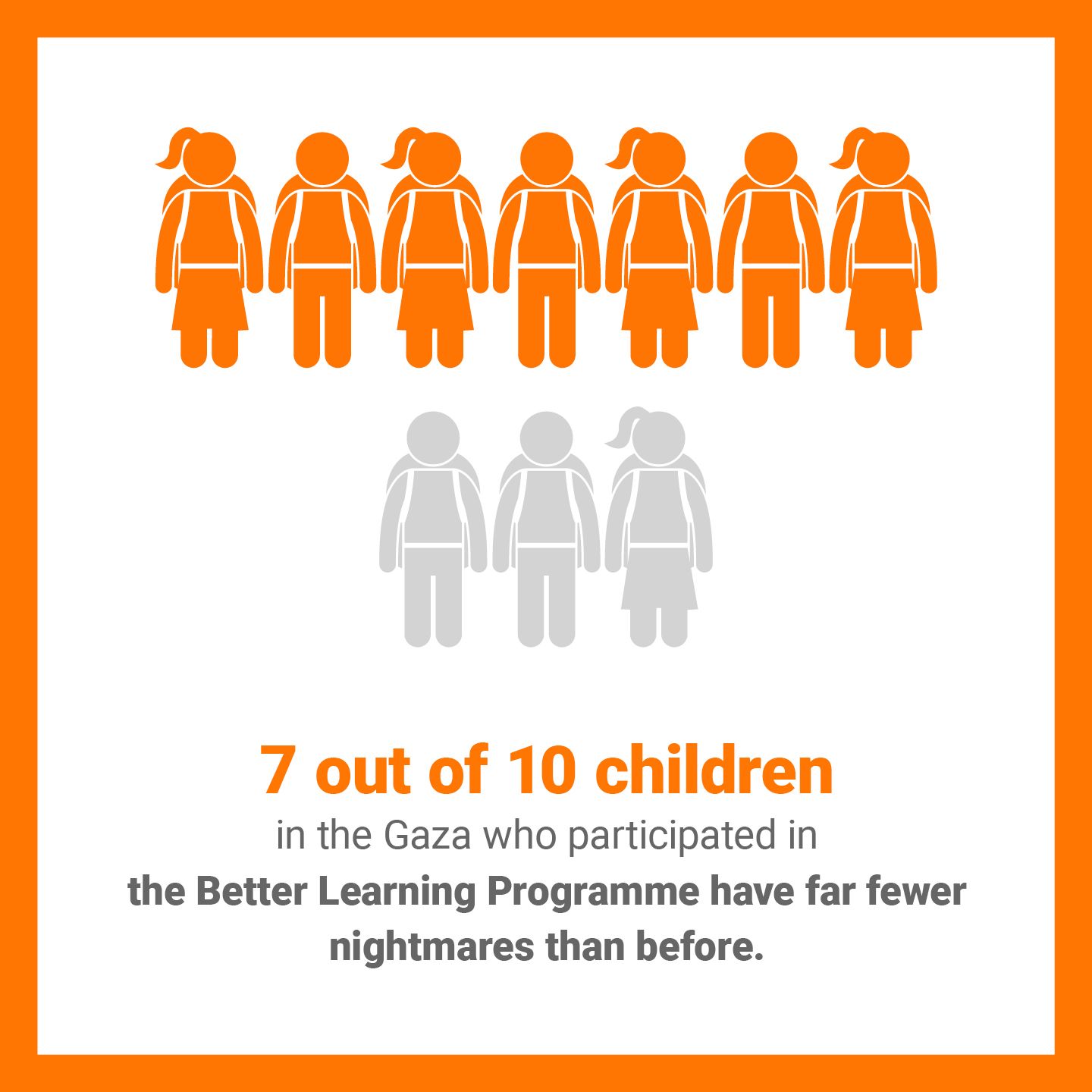

PALESTINE/GAZA 2017. Omaia, 13, dissolves in tears during a conversation with Etemad Hjail, who teaches her how to deal with trauma and nightmares. Photo: Wissam Nassar/NRC
PALESTINE/GAZA 2017. Omaia, 13, dissolves in tears during a conversation with Etemad Hjail, who teaches her how to deal with trauma and nightmares. Photo: Wissam Nassar/NRC

5 YEARS LATER. Omaia, now almost 17, is still struggling, but the tears have been replaced with a smile. Here she is in conversation with Etemad Hjail, who taught her how to deal with trauma and nightmares. Photo: Yousef Hammash/NRC
5 YEARS LATER. Omaia, now almost 17, is still struggling, but the tears have been replaced with a smile. Here she is in conversation with Etemad Hjail, who taught her how to deal with trauma and nightmares. Photo: Yousef Hammash/NRC
#5: We provide psychosocial first aid
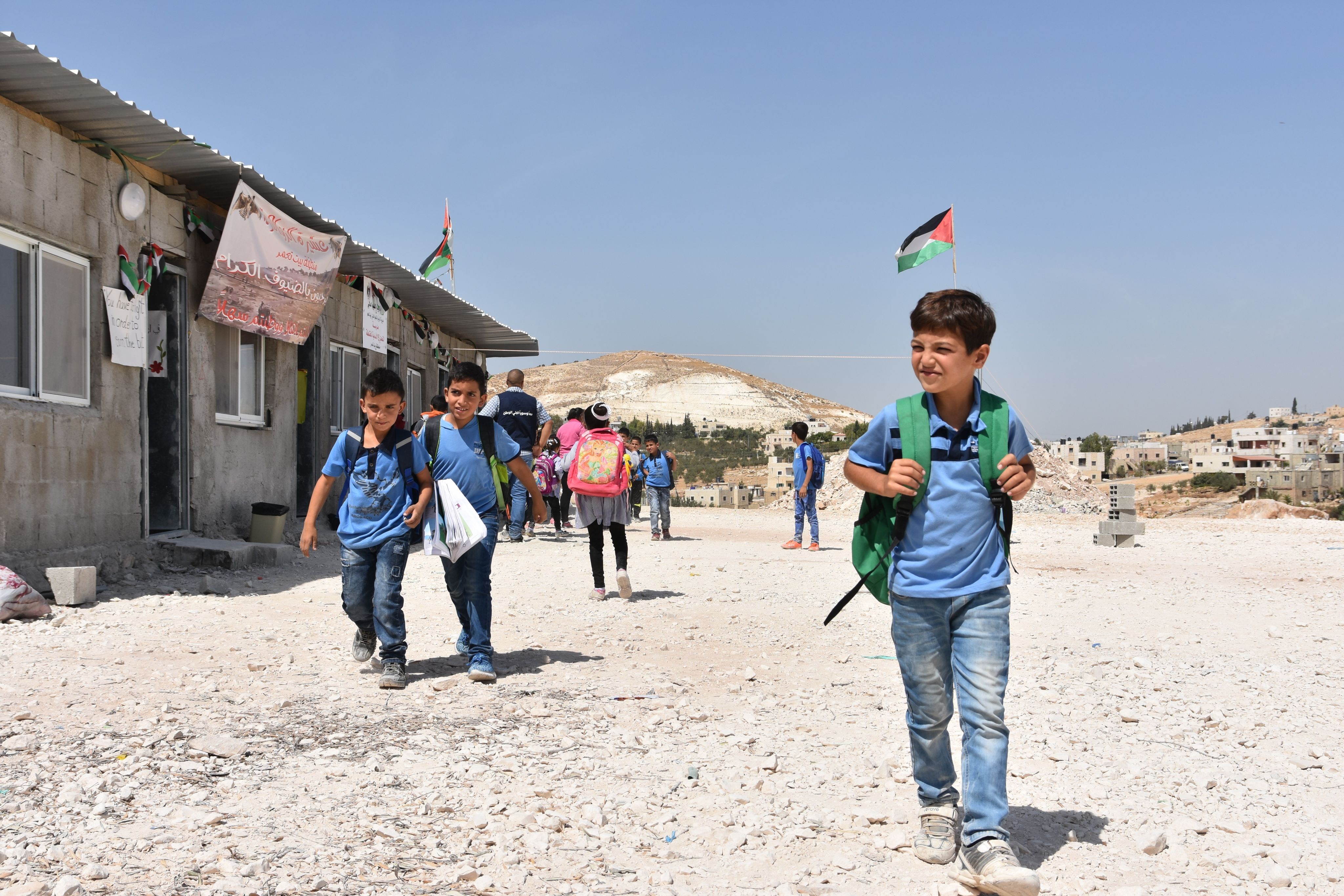
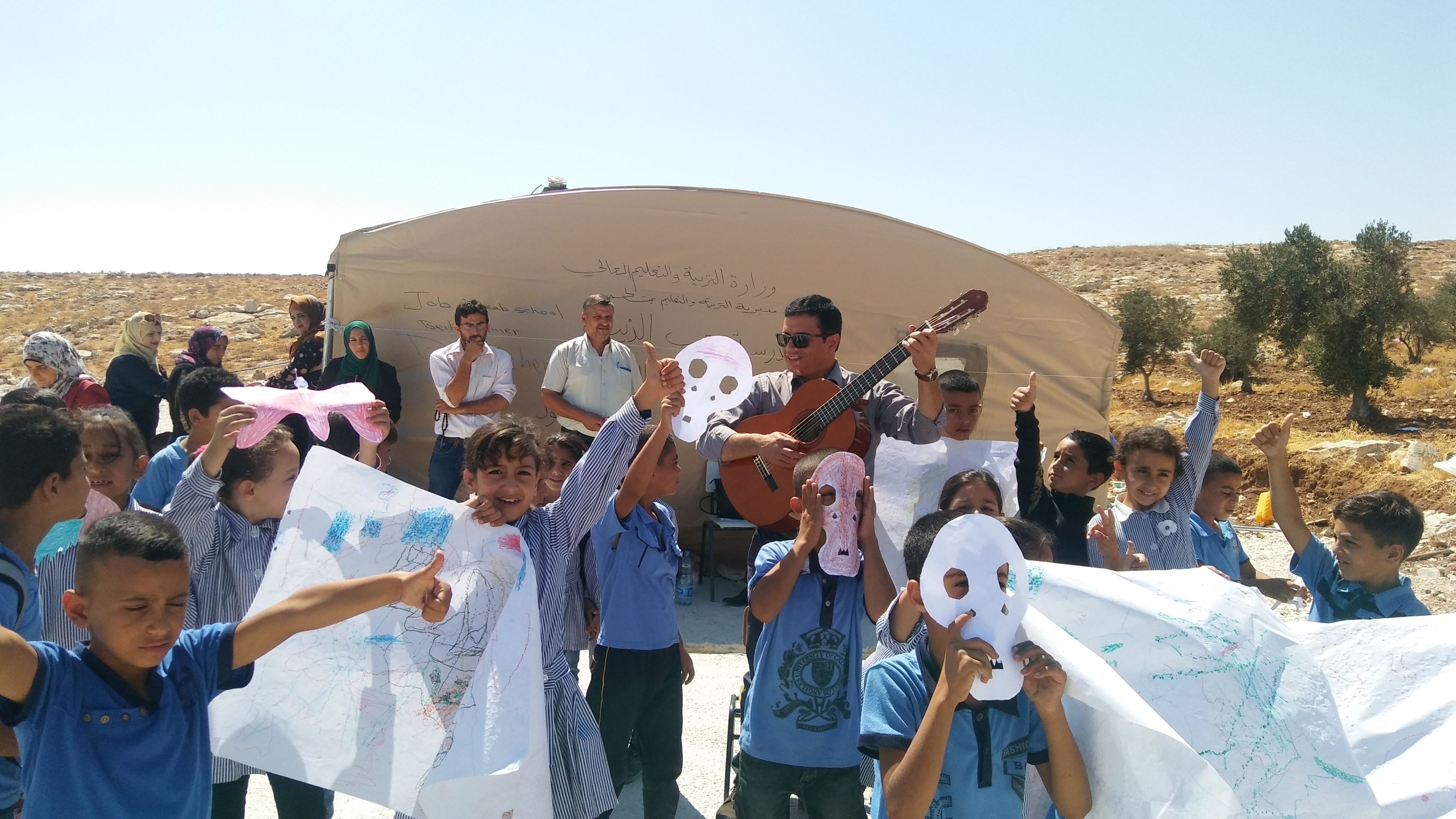
PALESTINE. Immediately after the school in Jubbet Adh-Dhib was razed to the ground by Israeli soldiers in 2017, NRC quickly supported with psychosocial first aid. Photo: NRC
PALESTINE. Immediately after the school in Jubbet Adh-Dhib was razed to the ground by Israeli soldiers in 2017, NRC quickly supported with psychosocial first aid. Photo: NRC
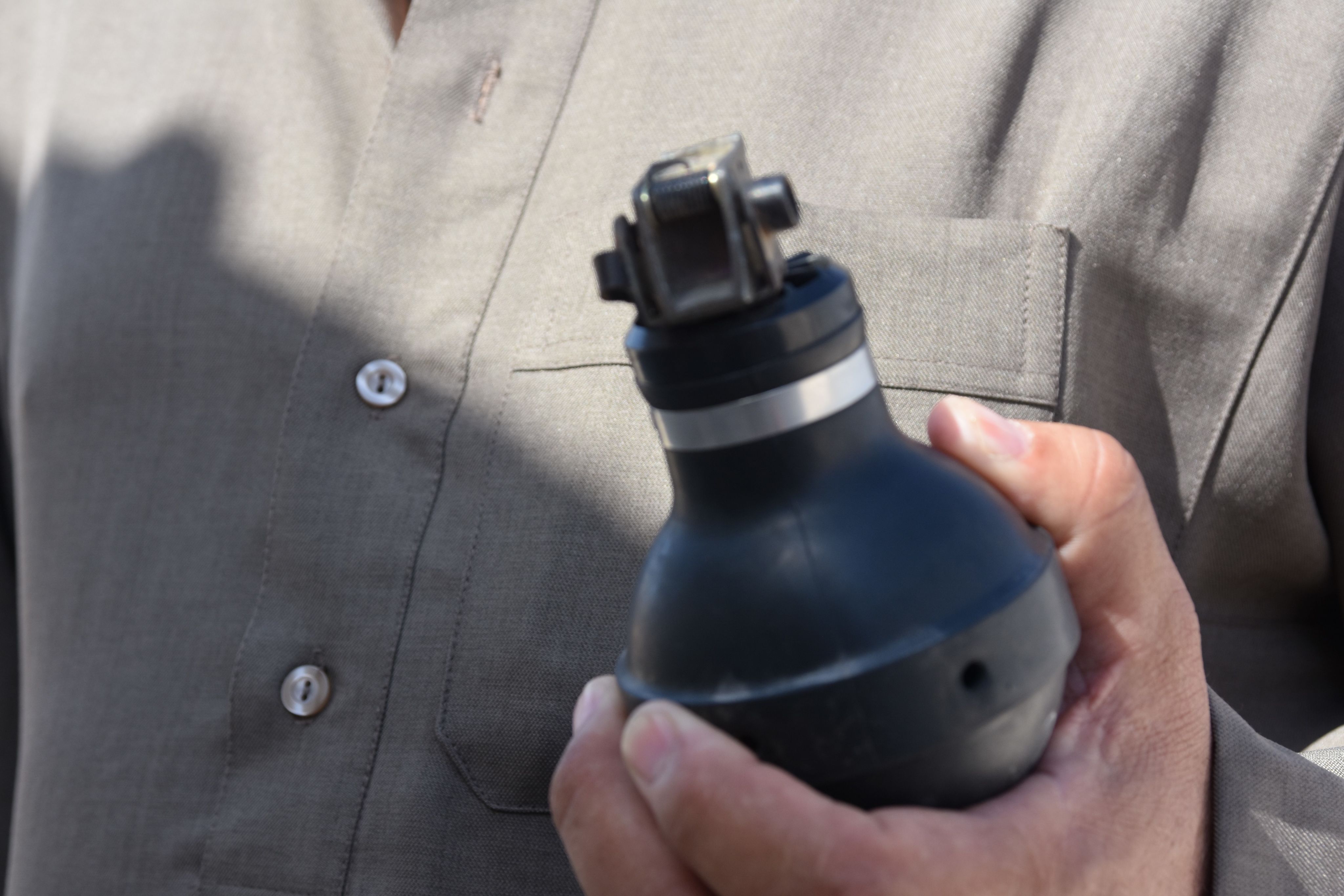
PALESTINE. The Israeli army uses, among other things, tear gas and stun grenades during attacks on schools. Photo: Roald Høvring/NRC
PALESTINE. The Israeli army uses, among other things, tear gas and stun grenades during attacks on schools. Photo: Roald Høvring/NRC
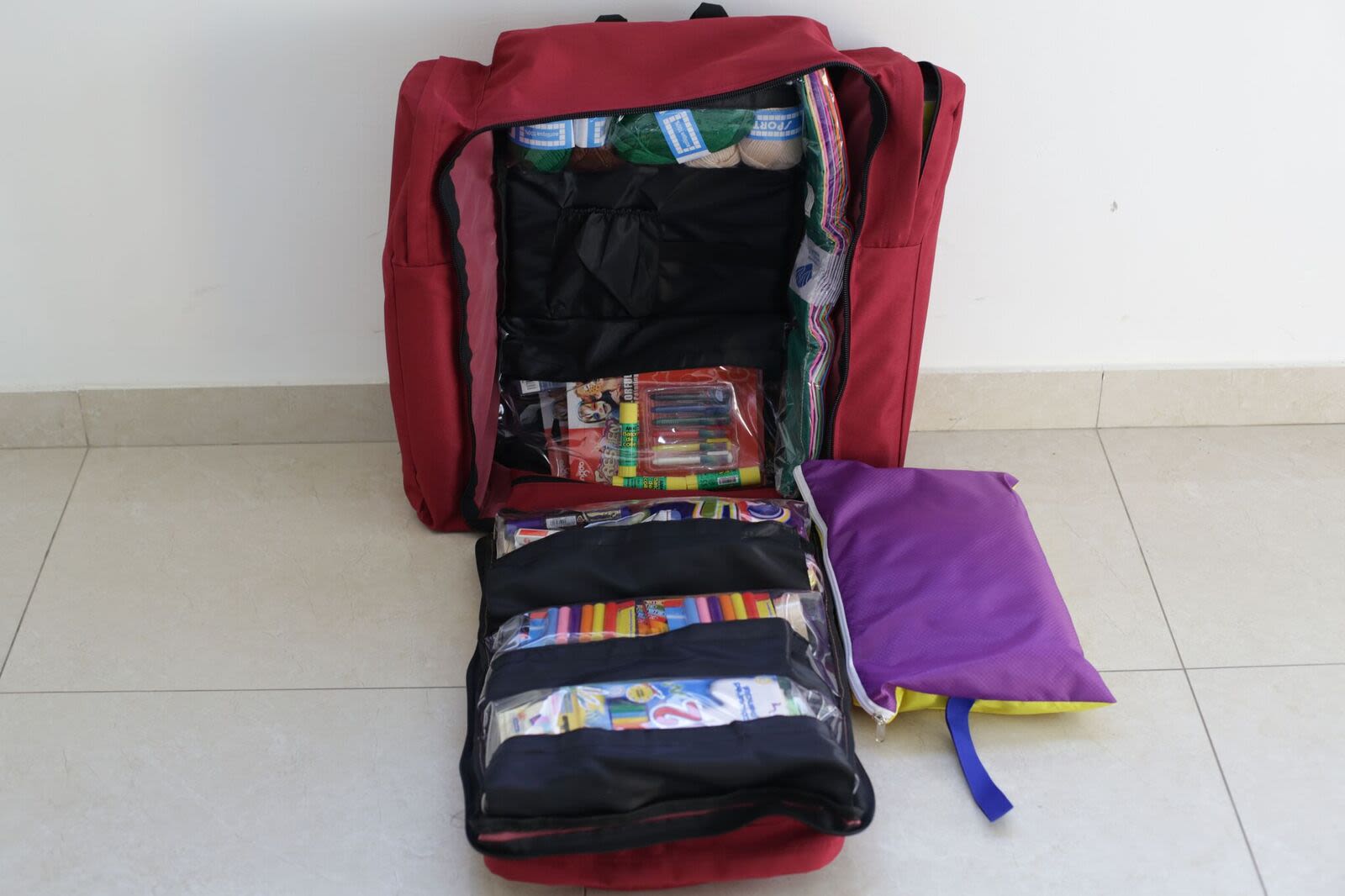
FIRST AID KIT. This bag is used by NRC's education teams and teachers where students and schools are being attacked. It contains, among other things, drawing equipment and educational material. Photo: Roald Høvring/NRC
FIRST AID KIT. This bag is used by NRC's education teams and teachers where students and schools are being attacked. It contains, among other things, drawing equipment and educational material. Photo: Roald Høvring/NRC
In areas affected by war and crisis, more and more schools and children are being attacked. Between January 2018 and June 2020, NRC registered an average of ten attacks a week on Palestinian schools and students. The attacks were carried out by Israeli soldiers, Israeli settlers and settlers’ private security guards.

PALESTINE. Immediately after the school in Jubbet Adh-Dhib was razed to the ground by Israeli soldiers in 2017, NRC quickly supported with psychosocial first aid. Photo: NRC
In Palestine, our staff provide psychosocial first aid to children, parents and teachers.

PALESTINE. The Israeli army uses, among other things, tear gas and stun grenades during attacks on schools. Photo: Roald Høvring/NRC
“Many of the children here are traumatised, and parents live in constant fear that their children will be arrested, shot or injured,” says Nazih Moughrabi, an NRC educator specialising in music and art.

FIRST AID KIT. This bag is used by NRC's education teams and teachers where students and schools are being attacked. It contains, among other things, drawing equipment and educational material. Photo: Roald Høvring/NRC
“When we arrived at the school, there were still rubber bullets and empty grenade casings scattered all over the schoolyard, and the children, teachers and parents were still in shock. So, we quickly started psychosocial ‘first aid’, as we call it, which consists of breathing exercises, singing, dancing, drawing, acting and more,” says Moughrabi, referring to an attack on a school in Jubbet Adh-Dhib in 2017.
#6: We help children return to school and cope with their fear of the pandemic
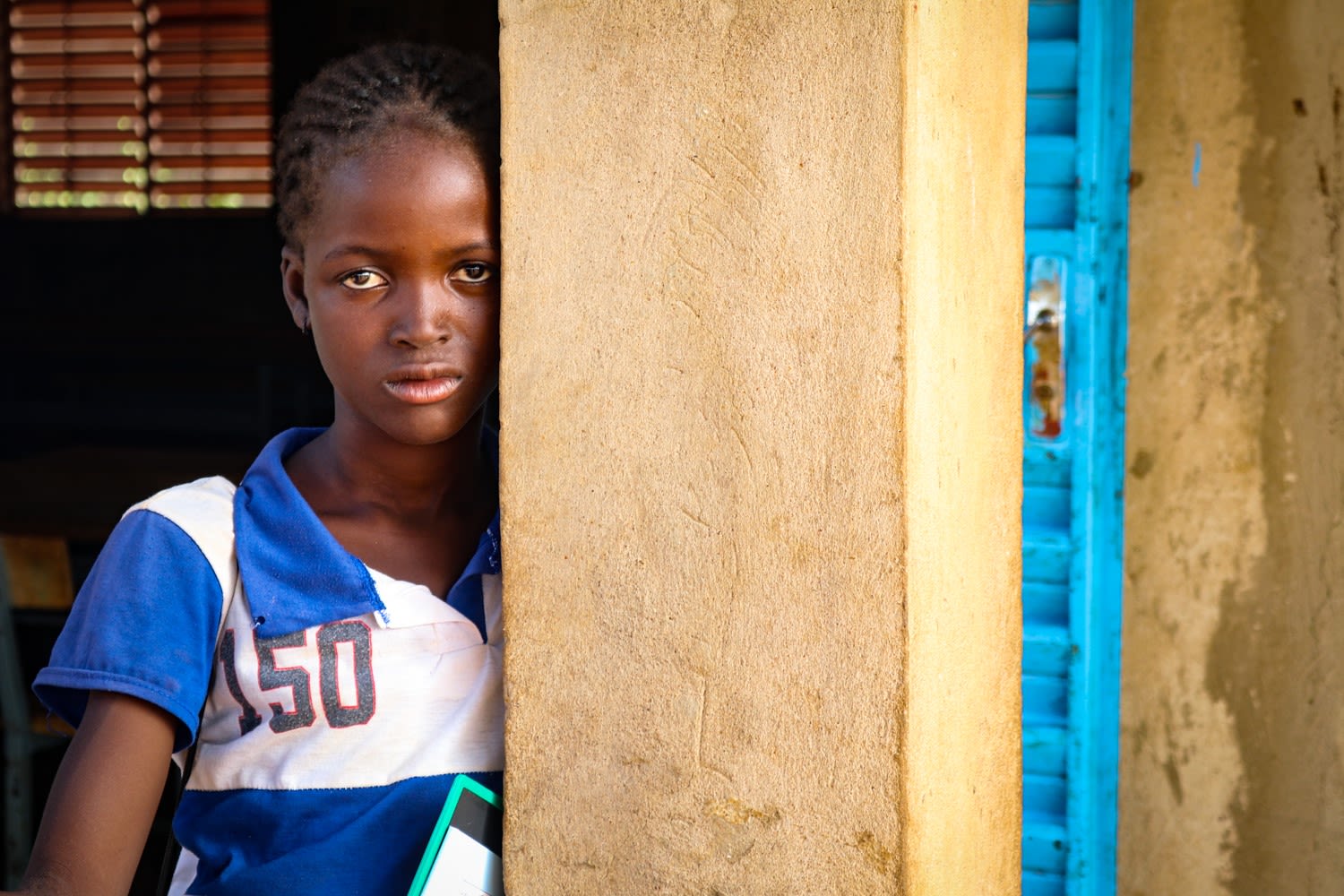
The coronavirus pandemic led to closed schools and increased fear among schoolchildren. Displaced children were in a particularly difficult situation. They were already struggling with the fear and trauma of war. On top of that, they had to deal with the fear of becoming ill and dying.
Wars don't end when bombs stop falling. Help us be there for children facing trauma. Visit nrc.no/donate.
To tackle this, we addressed the uncertainty and fear created by the pandemic in our learning programme.
Children who have experienced war and conflict, and who were now also struggling with the fear of Covid-19, received help to think other thoughts, so that they would have enough energy to play and do their schoolwork.
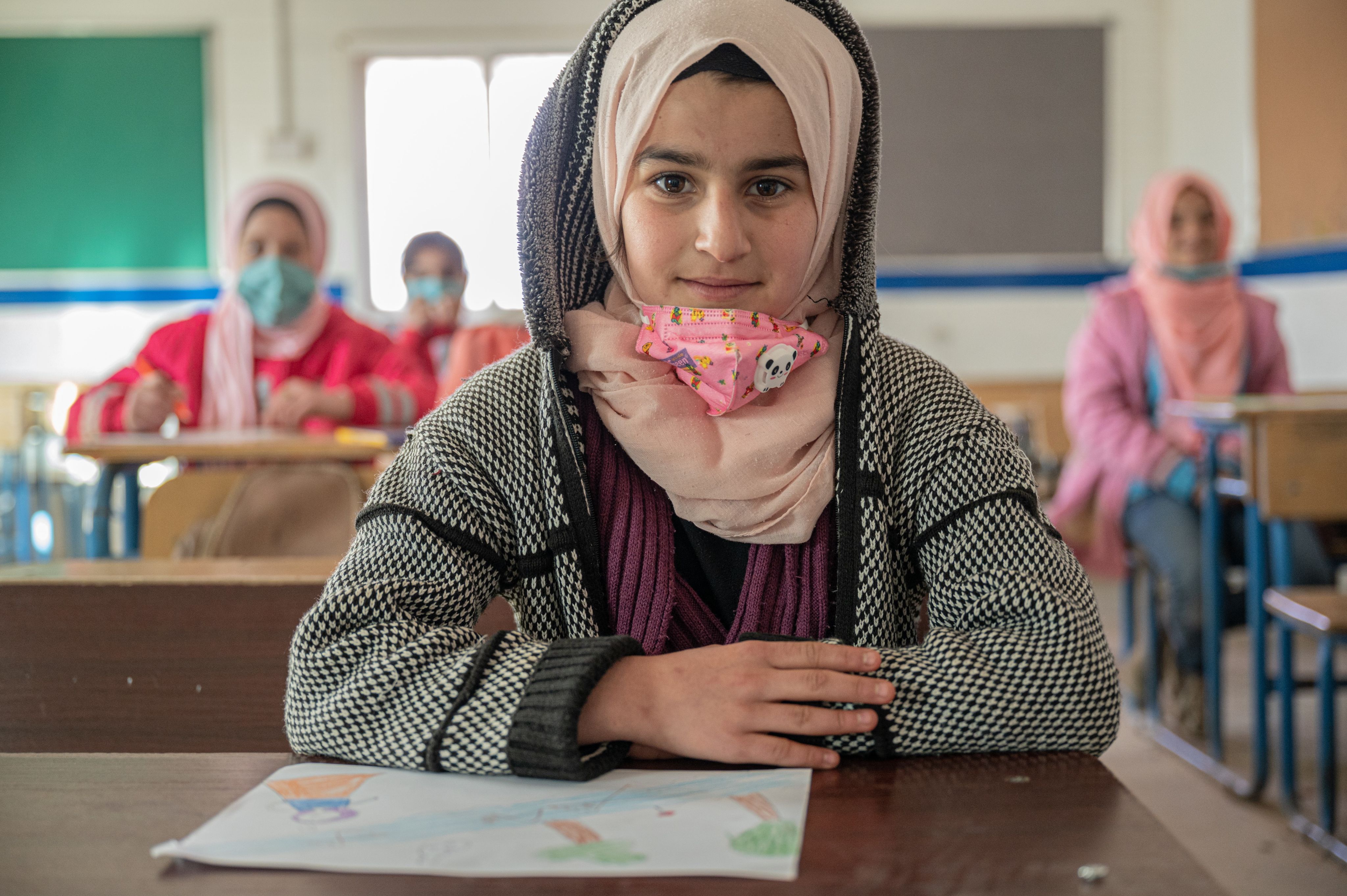
JORDAN. Alaa, 12, is from Syria but has lived in the Azraq refugee camp in Jordan for the past eight years. "I made friends through the Better Learning sessions, and I’ve learned to no longer be anxious or scared," she says. Photo: Daniel Wheeler/NRC
When NRC surveyed children in the Middle East, many told us they were afraid of dying if they became infected with Covid-19. Schultz says that nearly nine out of ten answered that they felt stressed by the virus.
During the shutdown, we facilitated distance learning and developed tailored learning programmes. Now, we are working to ensure that as many schools as possible reopen and that children are able to return to school.

JORDAN. Alaa, 12, is from Syria but has lived in the Azraq refugee camp in Jordan for the past eight years. "I made friends through the Better Learning sessions, and I’ve learned to no longer be anxious or scared," she says. Photo: Daniel Wheeler/NRC
JORDAN. Alaa, 12, is from Syria but has lived in the Azraq refugee camp in Jordan for the past eight years. "I made friends through the Better Learning sessions, and I’ve learned to no longer be anxious or scared," she says. Photo: Daniel Wheeler/NRC

